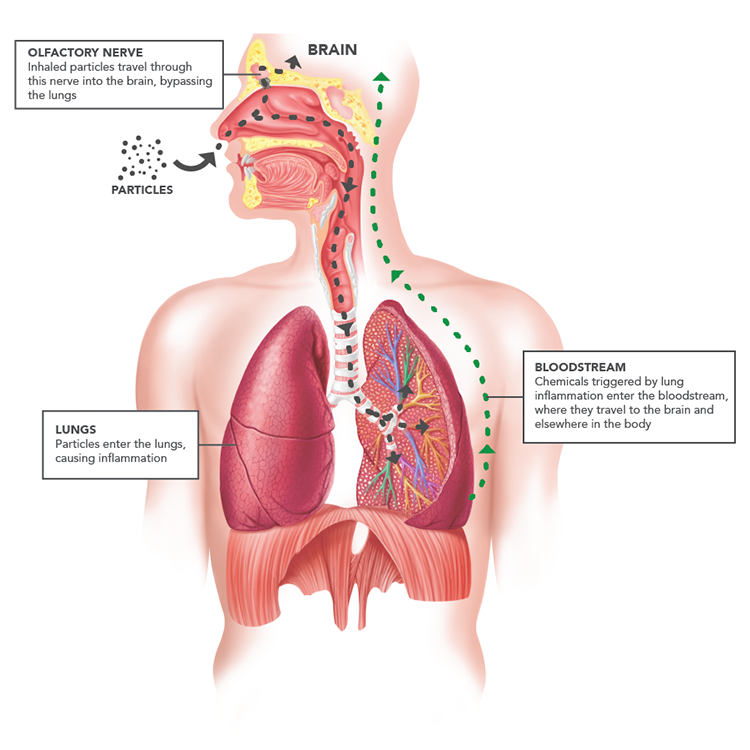Air Pollution and the Brain
Contact
Categories
Background
Studies over the past two decades suggest that air pollution exposures are linked to harmful effects on the brain. These studies compared children living in Mexico City, an area with high air pollution, versus those living in less polluted regions of the country.
The Mexico City children had poorer brain health than the other children, including the following:
- Breakdown of the brain’s protective layer;
- Changes in the brain resembling the early stages of Alzheimer’s disease; and
- Poorer performance on standardized psychological tests.
Mexico City has high outdoor pollutant levels, but it is not clear what pollutants, or other factors, might cause these health problems.
Can air pollutants enter or affect the brain?
Studies that exposed animals to ultrafine particulate matter (UFPM, particles less than 0.1 micrometers in diameter) showed the following:
- Inhaled particles can travel through a nerve running from the nasal cavity into the brain, bypassing the lungs;
- UFPM carried in the bloodstream can pass through the barrier that normally protects the brain; and
- Chemical markers of brain inflammation can increase.
Thus, air pollutants can affect the brain directly and indirectly (see Figure 1), and are associated with potentially harmful effects. These findings strengthen the case for inhaled pollutant-related brain impacts.

Can air pollution affect cognition and brain disorders?
Animals exposed to particulate matter or diesel particulates demonstrated:
- Poorer performance in mazes, and other learning and memory problems; and
- Behaviors resembling human anxiety, depression, and impulsiveness.
In humans, emerging evidence suggests links between air pollution and harmful brain effects in the elderly. Two recent studies revealed associations between air pollution and dementia:
- A study in Ontario, Canada found that the risk of dementia increased the closer people lived to major roadways. 1
- A study of U.S. women showed higher risk of cognitive decline and dementia for those exposed to levels of fine particulate matter (PM2.5, particles less than 2.5 micrometers in diameter) above the national standard.2
Should we be concerned?
Research findings about associations between air pollution and negative effects on the brain are just beginning to emerge, so we cannot make definite conclusions at this time. In the meantime, CARB continues its efforts to reduce air pollution exposures, to protect public health for all Californians.
What research is CARB doing In this area?
CARB is currently involved in research investigating associations between air pollution exposure and harmful effects on the brain. For a list of completed and current health-related research projects, visit CARB's Research Projects Catalog.
